

WordPress is the leading tool for building websites, used on over 43% of all websites. A common question people have is choosing between WordPress .com and .org. WordPress.com provides a hosted service with free and paid plans, while WordPress.org offers the system for free download and installation on any website hosting company.
Both modalities differ significantly from each other as shown in the summary above. However, the slight differences between them can lead to confusion and misinformation.
What distinguishes WordPress.com from WordPress.org? How can you select the most suitable option for your project? This article aims to address these questions and assist you in making an informed decision.
WordPress.org and WordPress offer two distinct modes of operation.
WordPress comes in two forms: one is available for free download on WordPress.org, while the other is a service provided by WordPress.com. Despite this distinction, both modalities operate on the same source code, highlighting the importance of this fact to users.
The primary distinction between WordPress.com and WordPress.org lies in the hosting options. WordPress.com offers hosting as part of its service, whereas WordPress.org only offers the WordPress source code for installation on any hosting service or personal computer.
Both modalities, WordPress.com and WordPress.org, share the same software at their core, which is WordPress. Updates to the software apply to both versions.
Understanding this element is crucial for distinguishing between WordPress.com and WordPress.org. We will explore each of these options in the following sections.
Official repository of WordPress.org

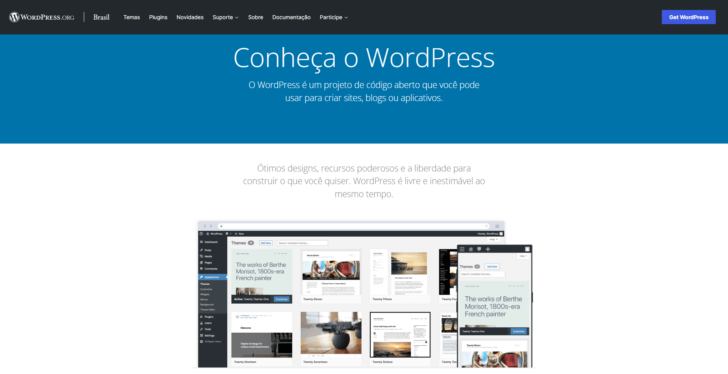
The WordPress version from wordpress.org can be freely downloaded and needs to be installed on a hosting server to function, distinguishing it from wordpress.com.
The official WordPress repository offers a wide range of free themes and plugins that can enhance the appearance and functionality of a website. Themes act as the visual design of a WordPress site, while plugins serve as add-ons that extend the features of the platform. When used together, themes and plugins can greatly enhance the overall capabilities of a website, blog, app, or online store built on WordPress.
Themes and plugins on WordPress.org can be freely utilized on any WordPress installation, including those on different hosting providers. Subsequently, the article will explain that these same themes and plugins can also be applied on WordPress.com, albeit restricted to higher-tier plans.
Prerequisites are necessary for utilizing WordPress installed (.org).
Downloading WordPress is just the first step in starting a website with the platform. To unleash its full potential, you must install a content management system (CMS) on a hosting server. In essence, the following are required:
- Domain (for example: mysite.com)
- Website Hosting that works with WordPress
Many website hosting providers provide automated WordPress installation, sourced from WordPress.org, enabling users to maintain a WordPress site without extensive technical expertise or dependence on hosting company support.
WordPress Multisite: an overview and guide on setting up a network of websites.
WordPress offers a hosted service.


chsyys/GettyImages
WordPress is utilized as a service in WordPress.com, where technical aspects like hosting, SSL, backups, updates, themes, and plugins are managed by the service provider.
WordPress functions like other website builders, with users paying a fee to use the tool. In higher tiers, users can access the server to make significant changes to the default system and receive automatic updates for themes and plugins, similar to specialized hosting on the platform.
WordPress.com’s entire framework is provided and managed by Automattic, a company established by Matt Mullenweg, the creator of WordPress, and is currently under the company’s oversight.
Comparative table of WordPress.com and WordPress.org
Before we explore the specifics and characteristics that set WordPress.com and WordPress.org apart, we will compare the key features of these two options.
| WordPress. org | WordPress.com | |
|---|---|---|
| Customization of layout | yes | yes |
| Mobile app | yes | yes |
| Accommodation included | No | yes |
| Automatic backups | No | yes |
| SSL certificate | Yes, but it needs to be installed | yes |
| Allows online store | yes | From the Business Plan |
| Installation of third-party plugins | yes | From the Business Plan |
| Installation of third-party themes | yes | From the Business Plan |
| Footer signature removal | yes | From the Premium Plan |
| Allows you to connect your own domain | yes | From the Personal Plan |
| Technical support | Community | Community (all plans), chat and/or email (from the Premium plan) |
| Website Monetization | yes | From the Business Plan |
| View accommodation | Visit WordPress.com |
This table has likely answered the questions of many. Let’s further explore the key characteristics of the platform and how they vary between WordPress.com and WordPress.org.
Themes installation
The design of a WordPress website is determined by the theme selected, which is analogous to the “clothing” of the site. Themes allow users to modify the site’s appearance and certain features. Both WordPress.com and WordPress.org provide options for installing themes, albeit with some distinctions.
Users with WordPress installed on a hosting provider can utilize any theme on the platform, regardless of whether it is from the official theme repository or other WordPress theme marketplaces like TemplateMonster.

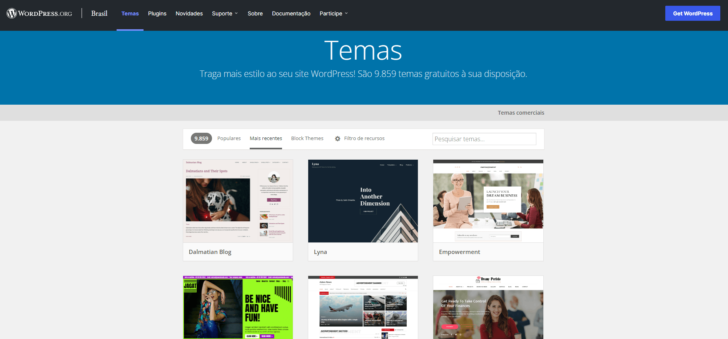
Users of WordPress.com face limitations when it comes to installing themes, with only the higher plans allowing for unrestricted theme installation similar to those mentioned before.


Third-party themes greatly contribute to WordPress’ popularity, thanks to the wide array of free and affordable options available from various developers.
If you wish to utilize a theme that has been purchased or downloaded, you can do so on any installed version of WordPress (.org) or on the premium WordPress plans.
Installing plugins on a device
WordPress plugins enable users to enhance system functionality in various ways. Without the option to incorporate additional features through plugins, the platform may not have gained its current level of popularity.
Both WordPress.org and WordPress.com provide access to plugins with very similar differences.
Only the premium plans of WordPress allow the use of third-party plugins, while the basic plans include features like anti-spam protection and JetPack statistics.

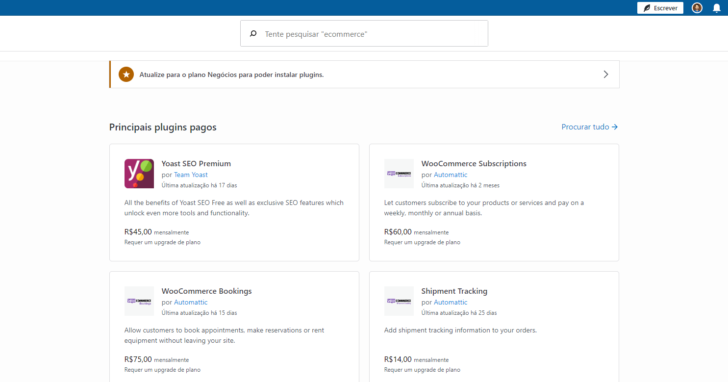
Plugins on WordPress.org can be freely installed on any hosting, without any restrictions. Just like themes, there are numerous free plugins in the official repository along with paid options available in online stores dedicated to this purpose.

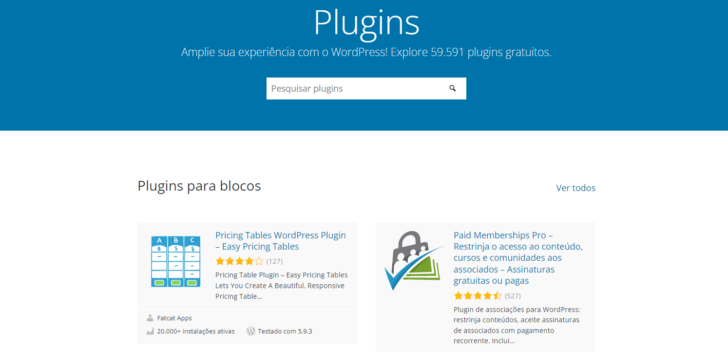
Both the highest WordPress.com plans and the self-hosted WordPress.org version permit unlimited plugin usage, while the basic WordPress.com plans are limited to the core functions of specific plugins.
Technical assistance
There are significant disparities in technical support between WordPress.com and WordPress.org.
WordPress.org, the official repository, does not offer support services. Users can access technical documentation, tutorials, and support forums for assistance with common plugin configuration and usage issues.

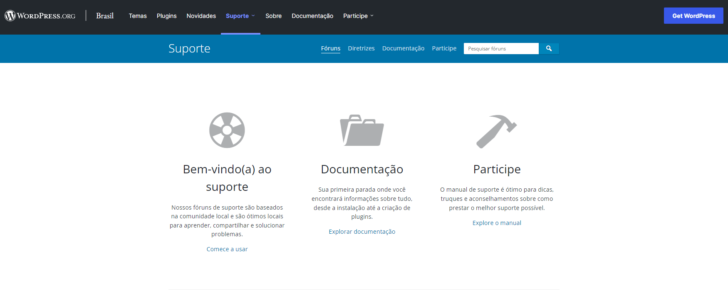
WordPress.com offers technical support through a dedicated team in their paid plans, with email support for the Personal plan and email or chat support for the Premium plan. Users on the free plan can access support through forums and tutorials for assistance.
It is important for WordPress users hosted by a hosting company to be aware that some providers may provide assistance with WordPress configurations and features.
Accommodation
WordPress users often find it confusing to differentiate between hosting with WordPress.com and WordPress.org. Simply put, any WordPress plan, including the free ones, comes with site hosting. However, to publish a site on the internet using software from WordPress.org, hosting must be purchased separately.
WordPress.com can be a great choice for individuals without technical expertise or those who prefer not to handle WordPress installation and updates, as it offers a robust infrastructure with servers globally.
WordPress.org is solely a software repository and not a hosting platform, requiring installation on a server, typically available through various hosting companies. Some providers facilitate one-click WordPress installation, though the hosting service’s quality may impact website performance. Opting for reputable and high-quality hosting is crucial to ensure a positive user experience.
Email provision
Email functionality is not inherently included in WordPress, regardless of the setup. While emails can be sent from a WordPress site, for instance, through contact forms, it is not feasible to have a custom professional email address like joao@site.com solely by installing WordPress.
You will always need to use an email service. It is important to note some aspects regarding WordPress .com and .org.
In any WordPress plan, you can opt for a professional email service that is sold separately from the plans. It costs R$ 8.75 per month per email account, in addition to the domain registration.
WordPress.com users can also use external email services by configuring them in the domain administration area.
WordPress.org users with hosting may find different pricing and formats for email services. Some hosting providers offer a basic email service with limited resources, which can suffice for those needing a contact email with the same domain. However, for more robust email usage or additional features, it may be worth looking into a professional email service separate from the hosting.
WordPress admin area. with WordPress.org
The original software of WordPress can be found on both WordPress.com and WordPress.org, as well as through various hosting companies that provide automatic installation.

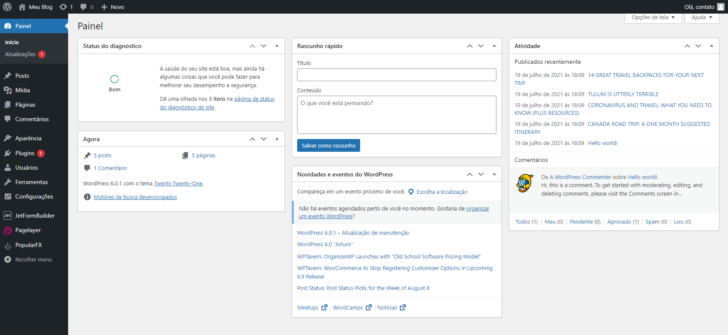
WordPress provides a service with its unique control panel layout designed to simplify managing its features. Users can also switch to the classic panel (wp-admin) for a familiar interface.

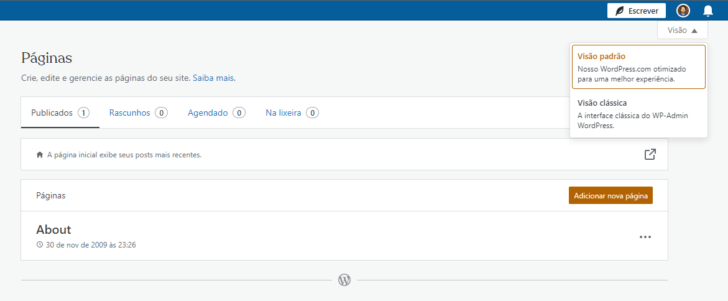
The WordPress dashboard includes features beyond basic management tasks like creating pages and posts, such as managing plans, domains, and emails. Some of these additional features are only accessible in paid versions of WordPress or through separate purchases, like the email service.
Comparing expenses between WordPress.com and WordPress.org.
WordPress.com offers different plans for users, including a free option and various paid plans. When setting up a new site, users need to select a plan, which can be changed later on.
The free WordPress plan has several limitations, such as not allowing the use of a custom domain. Instead, you must use a WordPress subdomain like mysite.wordpress.com.
The free version comes with a WordPress subscription in the footer, unremovable ads, and basic site appearance customization. External themes and plugins cannot be installed in this mode.
Premium themes, ad removal, and Google Analytics integration are exclusive features found at the top tier.
Third-party themes and plugins can only be installed from the Business plan, similar to how it can be done with versions installed in hosting companies.
All packages come with WordPress updates and hosting service.
Compare the different plans offered in WordPress below.
| Resources | Free | Staff | Premium | Business | eCommerce |
|---|---|---|---|---|---|
| Price/month (covered annually) |
R$ 0 | R$ 12 | R$ 26 | $83 | R$ 149 |
| Field Customized |
No | yes | yes | yes | yes |
| Field Free 1st year |
No | yes | yes | yes | yes |
| Support via chat and email |
No | yes | yes | yes | yes |
| Storage | 1 GB | 6 GB | 13 GB | 200 GB | 200 GB |
| Personalization design |
Basic | Basic | Advanced | Advanced | Advanced |
| Themes Premium unlimited |
No | No | yes | yes | yes |
| Ad removal WordPress.com |
No | yes | yes | yes | yes |
| Simple payments | No | No | yes | yes | yes |
| Monetization site |
No | No | yes | yes | yes |
| Tools SEO |
No | No | No | yes | yes |
| Integration Google Analytics |
No | No | yes | yes | yes |
| Installation Plugins |
No | No | No | yes | yes |
| Submission of themes custom |
No | No | No | yes | yes |
| Functions e-commerce |
No | No | No | No | yes |
| Visit | Visit | Visit | Visit | Visit |
Paid plans have numerous benefits compared to free plans and are ideal for individuals seeking a professional website with advanced features. The Business plan exclusively provides SEO tools for optimizing websites on search engines.
Live chat technical support is restricted to Premium plan subscribers, while free users can only utilize the forums and knowledge base.
In WordPress available on WordPress.org, there is no charge for using the system. The expenses are associated with domain registration and hosting services, which vary in price from inexpensive to more robust options. For instance, affordable hosting can range from R$ 7 to R$ 15 per month.
The selection of the right service relies on various factors like the volume of site visitors and server resource usage. Different services may be needed based on factors like resource-intensive plugins and themes. Consider our WordPress hosting ranking for platform-specific services.
App for WordPress available on both mobile and desktop devices.

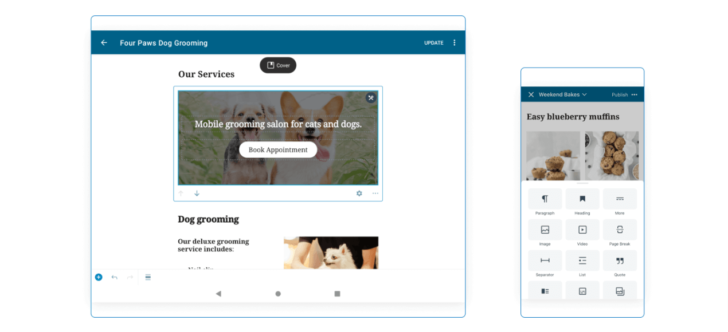
WordPress users have the option to use a mobile application to control their website, which is accessible on various mobile platforms as well as desktop computers running Windows, Mac OS, and Linux.
The application enables you to handle various WordPress functions, specifically content publishing and editing on the website. It permits configuration tasks like modifying themes and adding plugins, as well as providing insights into the site’s audience statistics.
The mobile application works with websites made with WordPress, whether they are hosted on external platforms or use the source code from WordPress.org.
The application is not required to manage WordPress, as it can be done through any web browser. It is seen as a more user-friendly alternative.
All editions of the WordPress application are available for free download at apps.wordpress. with.
Ownership of the property on the website and movement.


Many users worry that they may not have full ownership of the website they create using a website building tool, meaning they might be stuck with the tool and unable to transfer the site to another company.
In WordPress, it is possible to move content between .com and .org platforms in any direction.
There could be limitations on what can be transferred, with certain items like plugins and premium themes potentially not being compatible based on the selected destination.
Content created in WordPress is not lost if a user doesn’t renew the paid plan; it is automatically transferred to the free plan with limitations. On WordPress.org, content can be entirely deleted if the user discontinues hosting payments without an external backup.
To find out more about the topic, refer to the guide on how to transfer from WordPress.org.
How to decide between WordPress.com or WordPress.org?
To facilitate comparison, think about choosing between renting an aparthotel and purchasing a property.
At an aparthotel, you can access various services like laundry, storage, and concierge. Property issues like leaks are the responsibility of the owner, not yours. However, you are not allowed to make any changes to the apartment; you can only move out if needed.
An aparthotel can be likened to the services provided by WordPress. It includes hosting management, updates, backups, and security. If needed, you can export your site content and import it onto another platform with certain restrictions.
Having WordPress installed (.org) is like owning a property instead of renting it. You are free to make any renovations you want on the property. However, you are also responsible for all maintenance, including structural issues like faulty pipelines.
We now move on to the considerations.
When is the right time to opt for WordPress.com?
WordPress can be a good option for those who prefer not to deal with infrastructure and maintenance setup and are ready to pay for a higher-tier plan annually.
WordPress.com and WordPress.org provide comparable features with the WordPress Business plan, which supports plugin and external theme installations. However, the free and basic plans on WordPress.com have restrictions, as discussed in the article.
If you aim to create a basic blog or website, the free WordPress plan can serve as a starting point. It enables quick site setup and offers essential features for a blog or institutional website without the need to manage infrastructure. Additionally, you can upgrade the plan later on if needed.
Click here to register for a complimentary WordPress account.
When I need to decide on WordPress.org.
WordPress.org is a good option for users looking to make advanced customizations on WordPress without investing a lot upfront. With just one domain and hosting, users can create complex websites based on their goals and the site administrator’s expertise level.
If you want to make money from your website and have more control over its customization and infrastructure, you may want to consider using WordPress.org. This platform provides greater flexibility for customizing and expanding your site. Don’t worry about technical challenges as there is plenty of online resources available to help you troubleshoot WordPress-related issues. Additionally, there are companies that offer services to help with the technical aspects of WordPress installation similar to the premium plans available on WordPress.com.
Discover the top accommodations for WordPress websites.
Distinguishing between WordPress .com and .org
Both WordPress.com and WordPress.org offer unique benefits and are worth considering, as highlighted in this article.
WordPress.com offers the benefit of not needing maintenance or worrying about infrastructure. The basic free plan is a good option for starting a blog without any cost, while the paid plans provide access to additional features for users willing to invest a little more.
WordPress.org is a compelling option in terms of cost-effectiveness due to being free and allowing unrestricted customizations. Specialized hosting services are increasingly available to help users avoid dealing with the technical aspects of WordPress.
If you’ve decided on the version that can be installed on any hosting (.org), take a look at our tutorial on building a WordPress site from scratch in four essential steps.
Feel free to ask any questions by leaving a comment, and I will do my utmost to assist you! 😉
Article first published on 28/08/2013 and revised on 3/10/2023.
Published on 03/10/2023, with an update on 24/04/2025.
Tags: WordPress comparison


